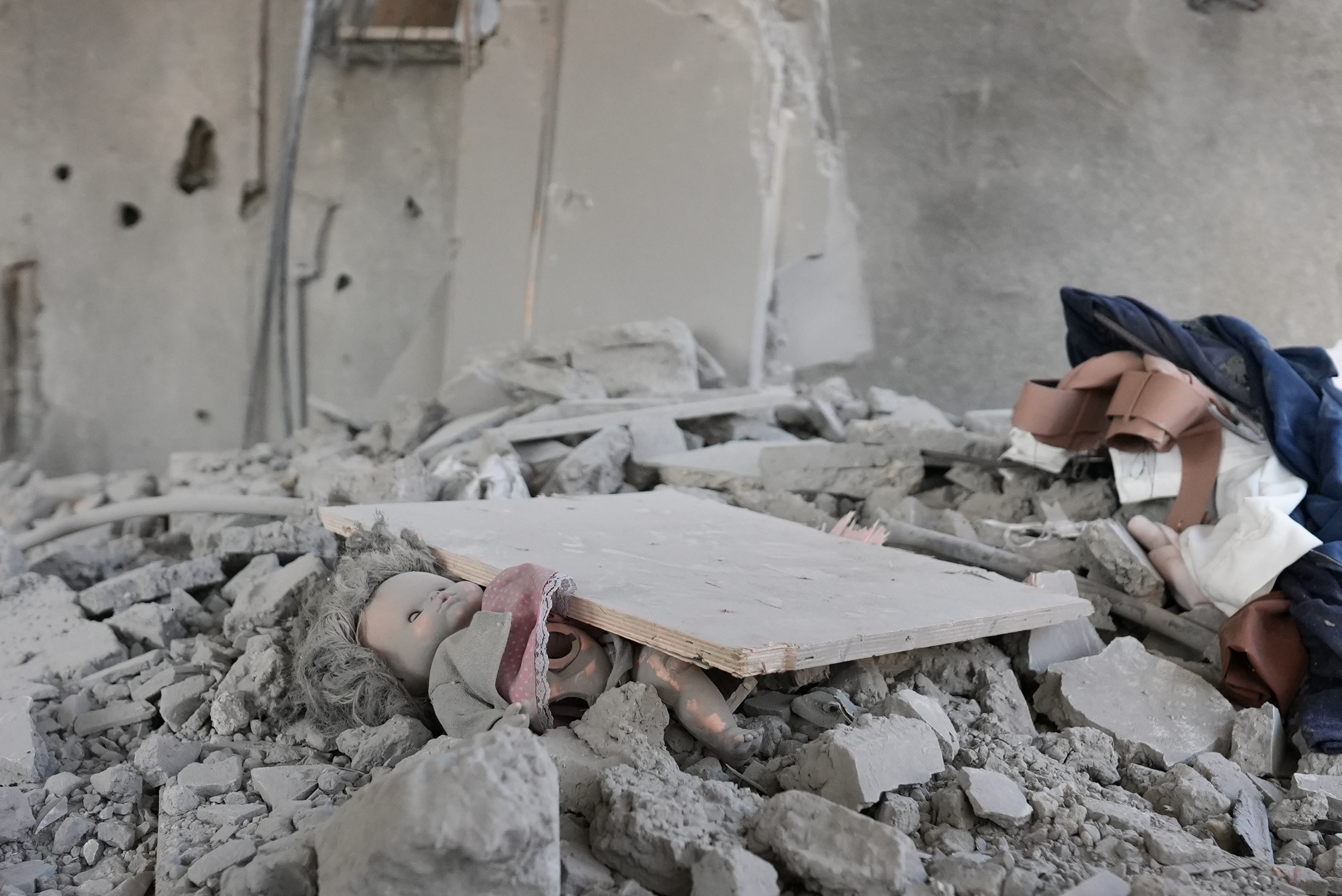Coloniality and the inadequacy of localisation
DOI:
https://doi.org/10.21153/thl2023art1971Keywords:
coloniality, localisation, global northAbstract
This article uses coloniality as an analytical framework to critique the concept of localisation. It argues that localisation is inadequate to respond to the asymmetrical power dynamic that it seeks to dislodge. Fundamentally, this is because localisation does not account for coloniality, which is the underlying logic of colonialism embedded within the humanitarian sector. Positionality and funding are two factors that enable organisations in the ‘Global North’ to remain powerful even through localisation, but this article goes further to interrogate how epistemic and methodological coloniality reinforces and
maintains subordination of organisations in the ‘Global South.’ Ironically, localisation seeks to recognise knowledge and experience from the ‘local’, but largely, this knowledge and experience must be produced through the methods and systems of the ‘Global North’. This is self-defeating because institutions in the ‘Global North’ gatekeep methods and practices and perpetuate a capacity gap that prevents effective localisation.
Metrics
Downloads
References
Aspengren, H. (2012). Empire: a Question of Hearts? In Empire, Development & Colonialism. Boydell and Brewer Limited, 45–58.
Cullen, Poppy; McCorriston; Steve & Thompson, Andrew. (2022). The “Big Survey”: Decolonisation, Development and the First Wave of NGO Expansion in Africa After 1945. The International History Review, 44:4, 721-750.
Baguios, Arbie; King, Maia; Martins, Alex and Pinnington, Rose. (2021). Are we there yet? Localisation as the journey towards locally led practice Models, approaches and challenges. ODI, Available at: https://odi.org/en/publications/are-we-there-yet-localisation-as-the-journey-towards-locally-led-practice/
Barbelet, Veronique. (2018). As local as possible, as international as necessary: understanding capacity and complementarity in humanitarian action. ODI, Available at: https://odi.org/en/publications/as-local-as-possible-as-international-as-necessary-understanding-capacity-and-complementarity-in-humanitarian-action/
Bhabha, Homi. (1994). The Location of Culture. Routledge.
Bhambra, G. K.; Gebrial, D. and Nişancıoğlu, K. (2018). Decolonising the University. London: Pluto Press.
Brabant, Van. K. & Patel, S. (2018), Localisation in practice, emerging indicators and practical recommendations, Available at: https://www.preventionweb.net/files/59895_localisationinpracticefullreportv4.pdf
Calain, Philippe. (2013). Ethics and images of suffering bodies in humanitarian medicine. Social Science & Medicine, Volume 98:2013, 278-285,
Duffield, Mark, & Hewitt, Vernon. (2009). Introduction. In M. Duffield & V. Hewitt (Eds.), Empire, Development and Colonialism: The Past in the Present. Boydell & Brewer, 1-15.
European Commission. (no date). European Civil Protection and Humanitarian Operations – Localisation Fact sheet. Available at: https://civil-protection-humanitarian-aid.ec.europa.eu/what/humanitarian-aid/localisation_en
Fast, Larissa. (2017). Upending humanitarianism Questions emerging ‘from the ground up’. Humanitarian Policy Group. ODI.
Gathara, Patrick, (2020), What makes a humanitarian crisis. Al Jazeera Opinion, Available at: https://www.aljazeera.com/opinions/2020/7/3/what-makes-a-humanitarian-crisis
Geoffroy, V.; Grunewald, F.; & Ní Chéilleachair, R. (2017). More than the Money – Localisation in practice. Groupe URD & Trócaire, 1-8.
Grosfoguel, Ramón. 2011. Decolonizing Post-Colonial Studies and Paradigms of Political-Economy: Transmodernity, Decolonial Thinking, and Global Coloniality. TRANSMODERNITY: Journal of Peripheral Cultural Production of the Luso-Hispanic World. 1.1, Available at: https://live-ethnic-studies.pantheon.berkeley.edu/wp-content/uploads/2019/07/24/grosfoguel-decolonizing-pol-econ-and-postcolonial.pdf
Humanitarian Leadership Academy. (no date). Local knowledge in humanitarian response. Available at: https://static1.squarespace.com/static/5db2f0dc29f30174496dfbc6/t/5e53df328ff9f5167fd2408d/1582554934400/Humanitarian+Leadership+Academy+-+Local+Knowledge+in+Humanitarian+Response+Report_small.pdf
Humanitarian Advisory Group; CoLab; Glow Consultants; Insights; Australian Aid. (2021). Needles in a Haystack: Analysis of Global South roles in humanitarian knowledge production. Available at: https://humanitarianadvisorygroup.org/wp-content/uploads/2022/12/HAG-HH2-PPLL-Needles-in-the-HaystackFINAL.pdf
ICVA. (2019). Unpacking localization. Humanitarian Leadership Academy, Available at: https://www.icvanetwork.org/uploads/2021/08/Unpacking-Localization-ICVA-HLA.pdf
Jayawickrama, Janaka. (2018). Humanitarian aid system is a continuation of the colonial project. Al Jazeera Opinion, Available at: https://www.aljazeera.com/opinions/2018/2/24/humanitarian-aid-system-is-a-continuation-of-the-colonial-project
Kherbaoui, J., and Aronson, B. (2022). Bleeding through the band-aid: The white saviour industrial complex. In Routledge Handbook of Critical Studies in Whiteness (1st ed). Routledge, 269–279.
OXFAM. (2023). Inclusive language guide, Available at: https://policy-practice.oxfam.org/resources/inclusive-language-guide-621487/#:~:text=Language%20has%20the%20power%20to,in%20the%20context%20of%20inequality.
Mac Ginty, Roger and Richmond, Oliver, P. (2013). The Local Turn in Peace Building: a critical agenda for peace. Third World Quarterly. 34:5, 763-783.
Maldonado-Torres, Nelson. (2007). ON THE COLONIALITY OF BEING. Cultural Studies, 21:2-3, 240-270.
Mignolo, W. D. (2007). Delinking. Cultural Studies, 21:2, 449-514.
Mignolo, Walter D. (2009). Who Speaks for the "Human" in Human Rights? Hispanic Issues Series. Retrieved from the University of Minnesota Digital Conservancy, https://hdl.handle.net/11299/182855.
Mignolo, W. D. (2011). The Darker Side of Western Modernity: Global Futures, Decolonial Options. Duke University Press.
Mignolo, W. D. (2017). Coloniality Is Far from Over, and So Must Be Decoloniality. Afterall: A Journal of Art, Context and Enquiry, 43:38-45
Mignolo, W. D. (2020). Coloniality and globalization: a decolonial take. Globalizations, https://www.sit.edu/criticalconversations/assets/Coloniality-and-globalization-a-decolonial-take.pdf
O'Callaghan, Sorcha; Khan, Ayesha; Nwajiaku-Dahou, Kathryn; Tindall, Theo; Fouad, Leen and Milesi, Cecilia. (2023). Humanitarian hypocrisy, double standards and the law in Gaza. ODI, Available at: https://odi.org/en/insights/humanitarian-hypocrisy-double-standards-and-the-law-in-gaza/
Pallister-Wilkins, Polly. (2021). Saving the souls of white folk: Humanitarianism as white supremacy. Security Dialogue, 52:S, 98–106
Pardy, Maree.; Kelly, Max. and Mc Glasson, M. A. (2016) Listening and localisation. Centre for humanitarian leadership, Available at: https://centreforhumanitarianleadership.org/wp-content/uploads/2022/06/Listening-report_v2.pdf
Piquard, Brigitte. (2022). What knowledge counts? Local humanitarian knowledge production in protracted conflicts. A Central African Republic case study. Peacebuilding, 10:1, 85-100
Quijano, A. (2007). Coloniality and modernity/rationality. Cultural Studies, 21:2-3, 168-178.
Quijano, A. (2000). Coloniality of power and Eurocentrism in Latin America. International Sociology, 15 (2), 215-232
Roepstorff, K. (2020). A call for critical reflection on the localisation agenda in humanitarian action. Third World Quarterly, 41(2): 284–301.
Rutazibwa, Umurerwa, Olivia. (2018). What’s There to Mourn? Decolonial Reflections on (the End of) Liberal Humanitarianism. Journal of Humanitarian Affairs, 1:1.
Sabaratnam, M. (2017). Decolonising Intervention: International Statebuilding in Mozambique (1st ed.). Rowman & Littlefield International.
Spandler, Kilian; Roepstorff, Kristina and Maitra, Sulagna. (2022). Editorial: Localization and the politics of humanitarian action. Frontiers in Political Science, Available at: https://www.frontiersin.org/articles/10.3389/fpos.2022.10131874 2673-3145
Tlostanova, M. (2011). The South of the Poor North: Caucasus Subjectivity and the Complex of Secondary “Australism.” The Global South, 5(1), 66–84.
USAID. (no date). Localization. Available at: https://www.usaid.gov/localization#:~:text=USAID%20defines%20localization%20as%20the,is%20responsive%20to%20local%20communities.
Williams, D., & Young, T. (2012). The International Politics of Social Transformation. In Empire, Development & Colonialism. Boydell and Brewer Limited, 102–115.
Wright, G. W. (2012). NGOs and Western hegemony: causes for concern and ideas for change. Development in Practice, 22(1), 123–134.
Wynter, S. (2003). Unsettling the coloniality of being/power/truth/freedom: Towards the human, after man, its overrepresentation – an argument. CR: New Centennial Review, 3(3), 257–337
Zadeh-Cummings, Nazanin. (2022). Through the looking glass: Coloniality and mirroring in localisation. The Humanitarian Leader, working paper 031, NOVEMBER 2022, Available at: https://centreforhumanitarianleadership.org/research/publications/through-the-looking-glass-coloniality-and-mirroring-in-localisation/







